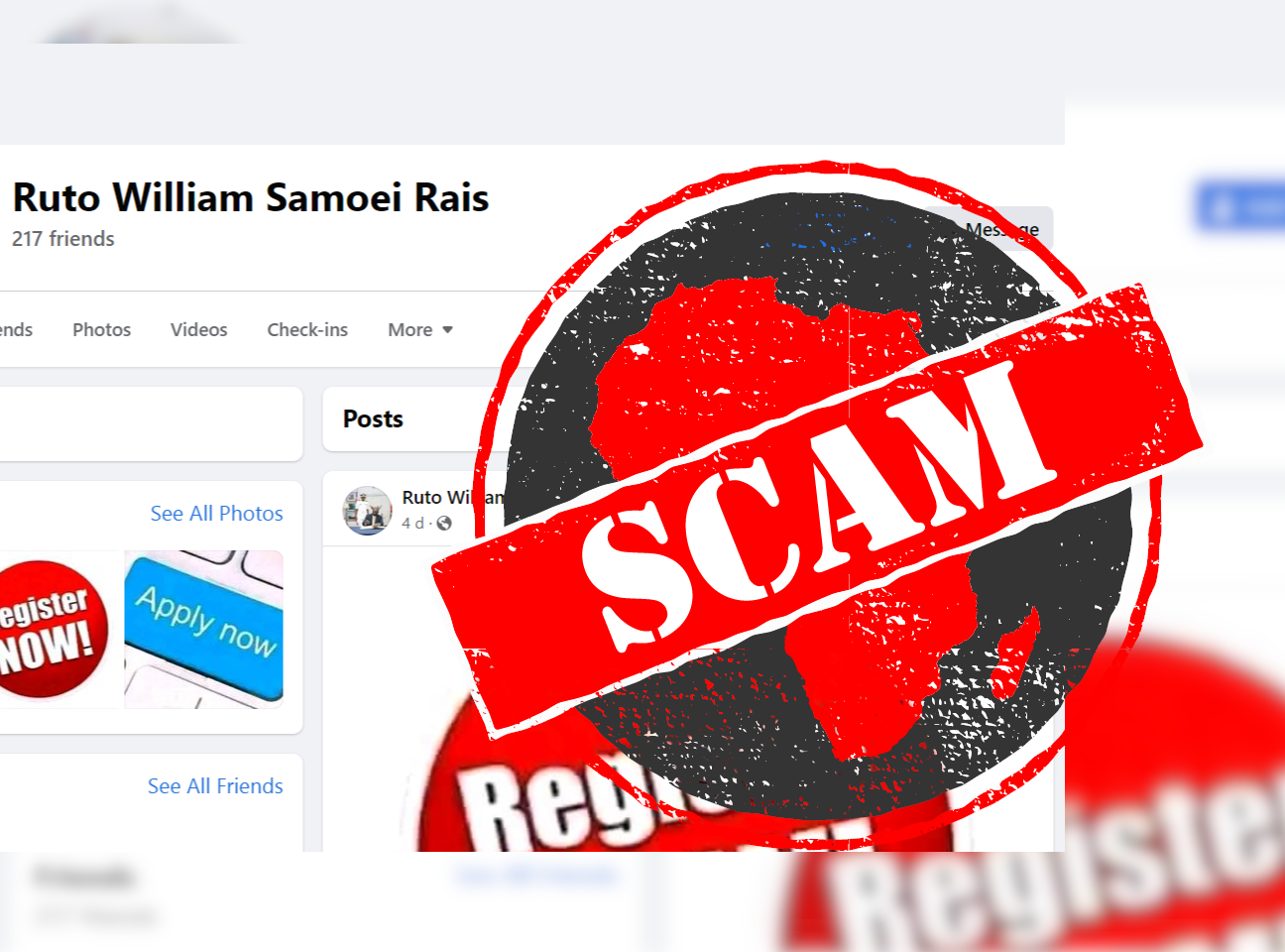IN SHORT: Another unverified Facebook page using the name of William Ruto, Kenya’s new president, is offering users cash and loans – if they pay a “registration fee”. But it’s just another scam.
William Ruto was inaugurated as Kenya’s fifth president on 13 September 2022.
And online scammers have been quick to try to take advantage of his higher profile. On 23 September Africa Check exposed the scam Facebook page “Mtarajiwa Rais Mweshimiwa Ruto”, which presents itself as Ruto’s account and offers bogus cash giveaways to users.
Now another imposter page has come across our radar: the account “Ruto William Samoei Rais”, which also promises cash giveaways, as well as loans.
Again, the account uses Ruto’s name and photos.
One of its posts asks users to send in their full names and phone numbers and pay a “registration fee” of KSh399 via M-Pesa mobile money transfer. The phone number given is supposedly for “my office Secretary”.
Once the “fee” has been paid, the post says, users will receive KSh60,000 in their M-Pesa accounts within five minutes.
Another post, in Kiswahili, says Ruto will give the same amount to all supporters in need of help, including people working in low-income jobs such as bike taxi drivers and small-scale vegetable sellers.
But the account is bogus.
No ‘blue tick’ verification badge, poor spelling and grammar

Facebook allows public figures such as Ruto to verify their pages. A verified page carries the “blue tick” verification badge.
Ruto’s official Facebook account, “William Samoei Ruto”, is verified. The account offering the promotional cash and loans is not.
It is unlikely that the president would operate two Facebook accounts and dedicate one to cash giveaways.
It is also unlikely that a Facebook account representing Kenya’s president would publish posts that are full of spelling and grammar errors, and ask for cash from supporters.
To help protect yourself against online scams, see Africa Check’s guide to Facebook scams and how to spot them.
Republish our content for free
For publishers: what to do if your post is rated false
A fact-checker has rated your Facebook or Instagram post as “false”, “altered”, “partly false” or “missing context”. This could have serious consequences. What do you do?
Click on our guide for the steps you should follow.
Publishers guideAfrica Check teams up with Facebook
Africa Check is a partner in Meta's third-party fact-checking programme to help stop the spread of false information on social media.
The content we rate as “false” will be downgraded on Facebook and Instagram. This means fewer people will see it.
You can also help identify false information on Facebook. This guide explains how.




Add new comment